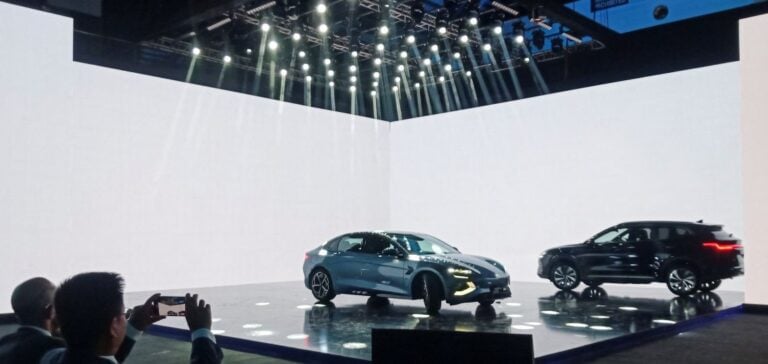BYD, a leading Chinese manufacturer of electric vehicles, is about to mark a decisive step in South Asia by opening a production plant in Karachi.
This project, developed in partnership with Mega Motors, a subsidiary of Hub Power Company Ltd, represents a strategic investment in a fast-growing market where the infrastructure for electric mobility is still under development.
The decision to set up a plant in Pakistan is part of a strategy of expansion into emerging markets, often neglected by the industry’s major players.
By introducing two SUVs and a sedan to the local market from the fourth quarter of 2024, BYD is not only strengthening its international presence, but also intends to play a key role in the evolution of the Pakistani automotive sector.
Flagship stores and experience centers in Karachi, Lahore and Islamabad will serve as showcases for these models.
Partnership strategy and impact on infrastructure
The alliance between BYD and Mega Motors is key to overcoming infrastructure challenges, particularly in a country where charging stations are still rare.
Hub Power Company Ltd, a major energy player in Pakistan, is committed to establishing a network of fast-charging stations in major metropolises and on major roads.
This initiative aims to support the adoption of electric vehicles in a context where the energy transition has become a national priority. Local production of electric vehicles will enable BYD to adapt its offer to the specific features of the Pakistani market, while promoting the development of local skills in a sector that is still in its infancy.
Kamran Kamal, CEO of Hubco, emphasizes that this investment is not only a technological breakthrough, but also a significant economic opportunity for Pakistan.
Industrial and technological outlook
The construction of this plant in Karachi is a strong signal from BYD to global industry.
It testifies to the growing interest of major groups in developing markets, seen as the future engines of industrial growth.
By developing a local production chain, BYD is not only anticipating increased demand, but is also helping to restructure Pakistan’s industrial landscape.
This large-scale project could also encourage other players in the automotive industry to follow BYD’s example, creating a beneficial ripple effect for the local economy.
The integration of cutting-edge technologies into production could also stimulate innovation in the country, accelerating the modernization of the entire industrial sector.
Issues and challenges
BYD’s entry into the Pakistani market is not without its challenges.
The mass adoption of electric vehicles will largely depend on the efficiency of charging infrastructures, but also on public acceptance of this new technology.
BYD’s ability to meet local expectations in terms of cost, performance and reliability will be crucial to its long-term success.
This project also highlights Pakistan’s efforts to position itself as a key player in the fight against climate change.
By supporting the production and adoption of electric vehicles, the country is taking a significant step towards reducing its dependence on fossil fuels, while aligning itself with global decarbonization trends.






















